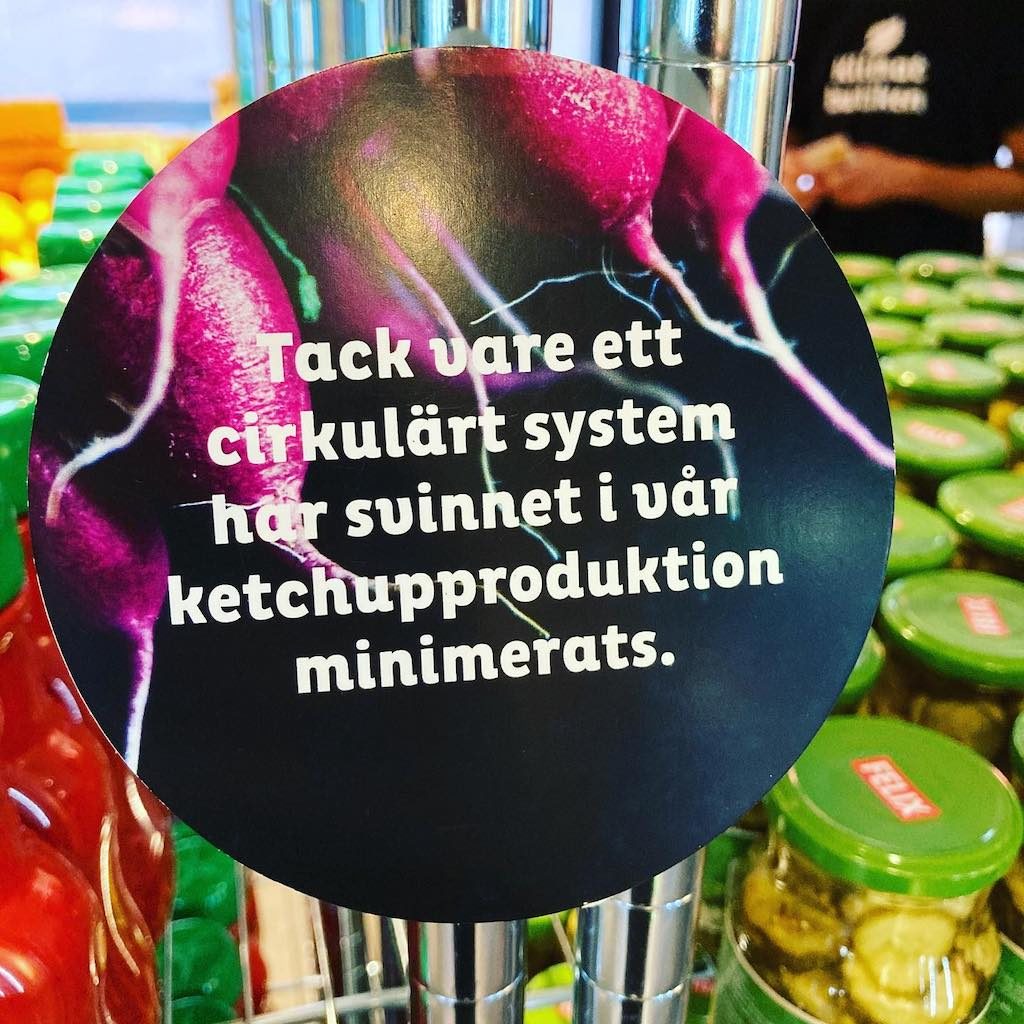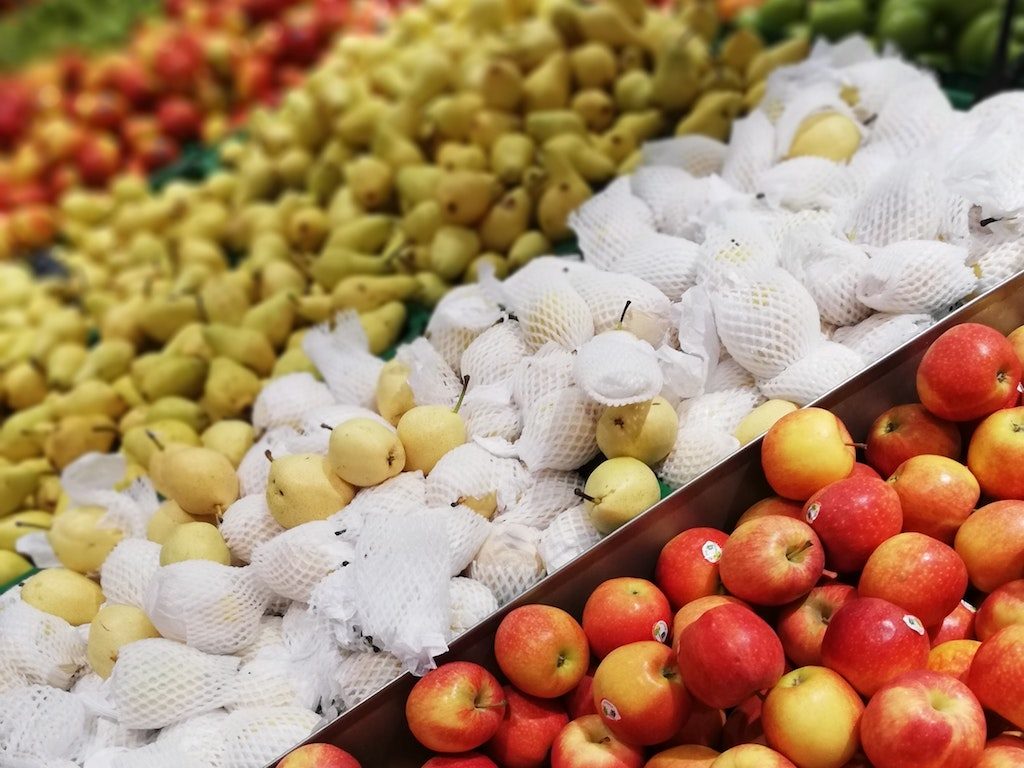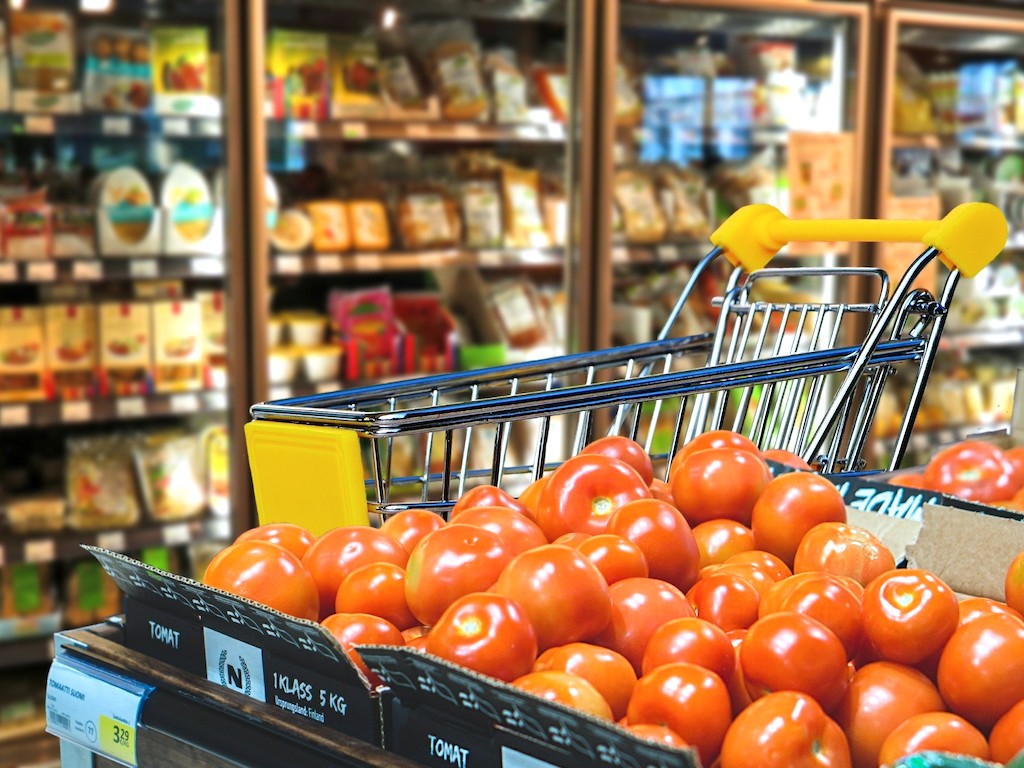A new supermarket called The Climate Store has landed in Sweden. In a world’s first, the grocery shop prices items according to their carbon footprint – meaning consumers pay higher prices for products that are more carbon-intensive, such as meat and dairy. The initiative launched by Felix, a Swedish food brand owned by Nordic food giant Orkla, is aimed at raising consumer awareness about the true impact of their food choices.
Opened earlier this month, The Climate Store is an interactive initiative launched by Felix where the currency is carbon. Customers shopping at the supermarket have a weekly budget of 18.9 kilograms of carbon dioxide equivalent, and items that are carbon-intensive, such as animal-based products, are priced higher than their plant-based counterparts, which have a far lower footprint.
Animal-based foods require more water, land resources to produce and emit more greenhouse gases. According to the United Nations, the livestock industry contributes almost a fifth of global greenhouse gas emissions – more than all transportation combined – and is a leading driver of deforestation due to deliberate land clearing to make room for ranching and feed cultivation.

“It will be exciting to see how customers react to trading with the CO2e currency and see if they manage to stay within their weekly budget,” said Thomas Sjöberg, marketing manager at Felix. “I think it will be an eye opener for many to see how certain choices affect what you can afford to get in the same lunch bag.”
By giving consumers a carbon footprint budget, the company hopes to halve the climate impact of the average grocery basket. It represents the first time such a concept has been created, and its goal is to raise consumer awareness about the environmental footprint of different foods. Felix, as part of the campaign, will also add labels to its products that indicate its climate impact.
It will be exciting to see how customers react to trading with the CO2e currency and see if they manage to stay within their weekly budget. I think it will be an eye opener for many to see how certain choices affect what you can afford to get in the same lunch bag.
Thomas Sjöberg, Marketing Manager at Felix
Felix represents one of Sweden’s most recognisable brands, offering everything from vegetarian ready-meals to jams, spreads and salad dressings. It says it hopes that the new labels and The Climate Store will encourage more shoppers to choose lower-carbon plant-based foods.

While this is the first time such a campaign has been put into reality, other supermarket chains have previously floated the idea. German discount retailer Penny, for instance, recently began showing consumers the hidden environmental cost of food alongside its retail price. The initiative saw meat and dairy products priced significantly higher, with minced meat nearly three times more expensive, while the cost of cow’s milk doubled.
Other brands have taken to rolling out carbon labels to incentivise more informed choices by consumers. Recently, Upfield, the parent company of multiple plant-based spreads and butters including Flora and Becel, announced it will display on-pack carbon footprint information on 100 million of its products by the end of next year.
Similar moves have been made by legacy vegan and vegetarian brand Quorn, who has launched low-carbon food labels on its best-selling products, and U.S. restaurant chain Just Salad’s decision to carbon label its entire menu.
Lead image courtesy of Pixabay.



